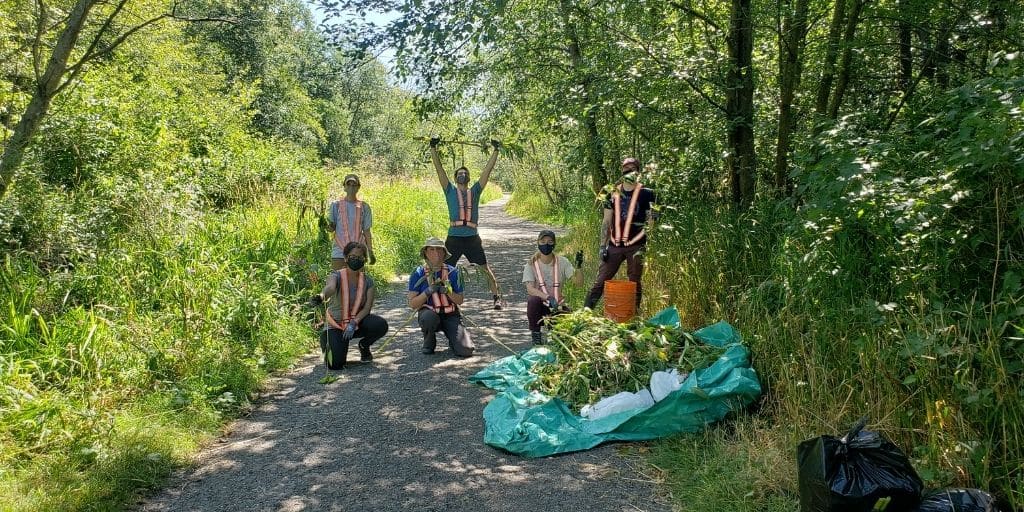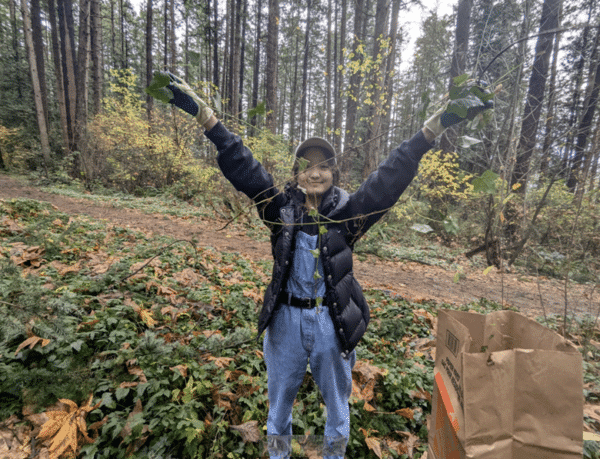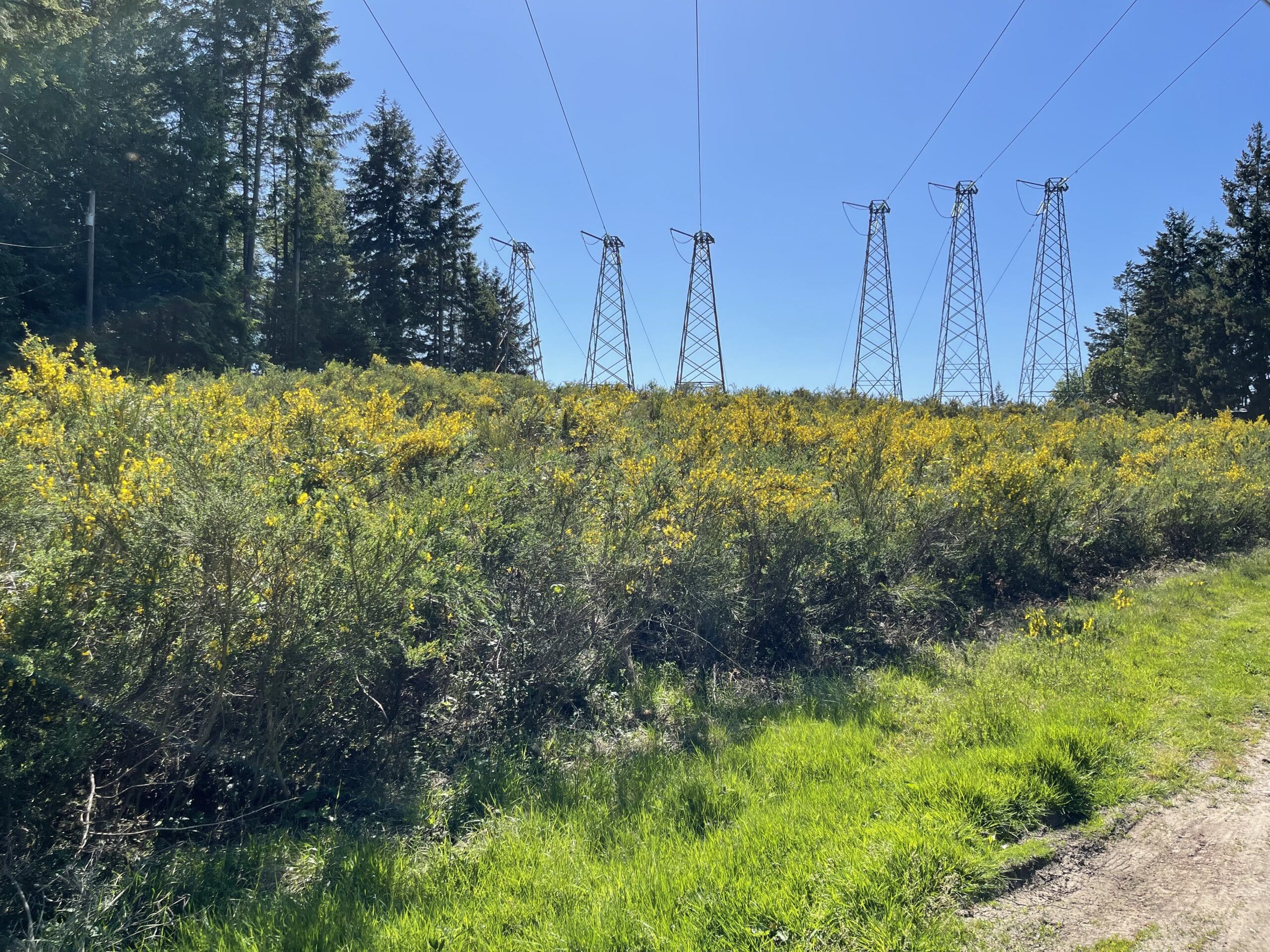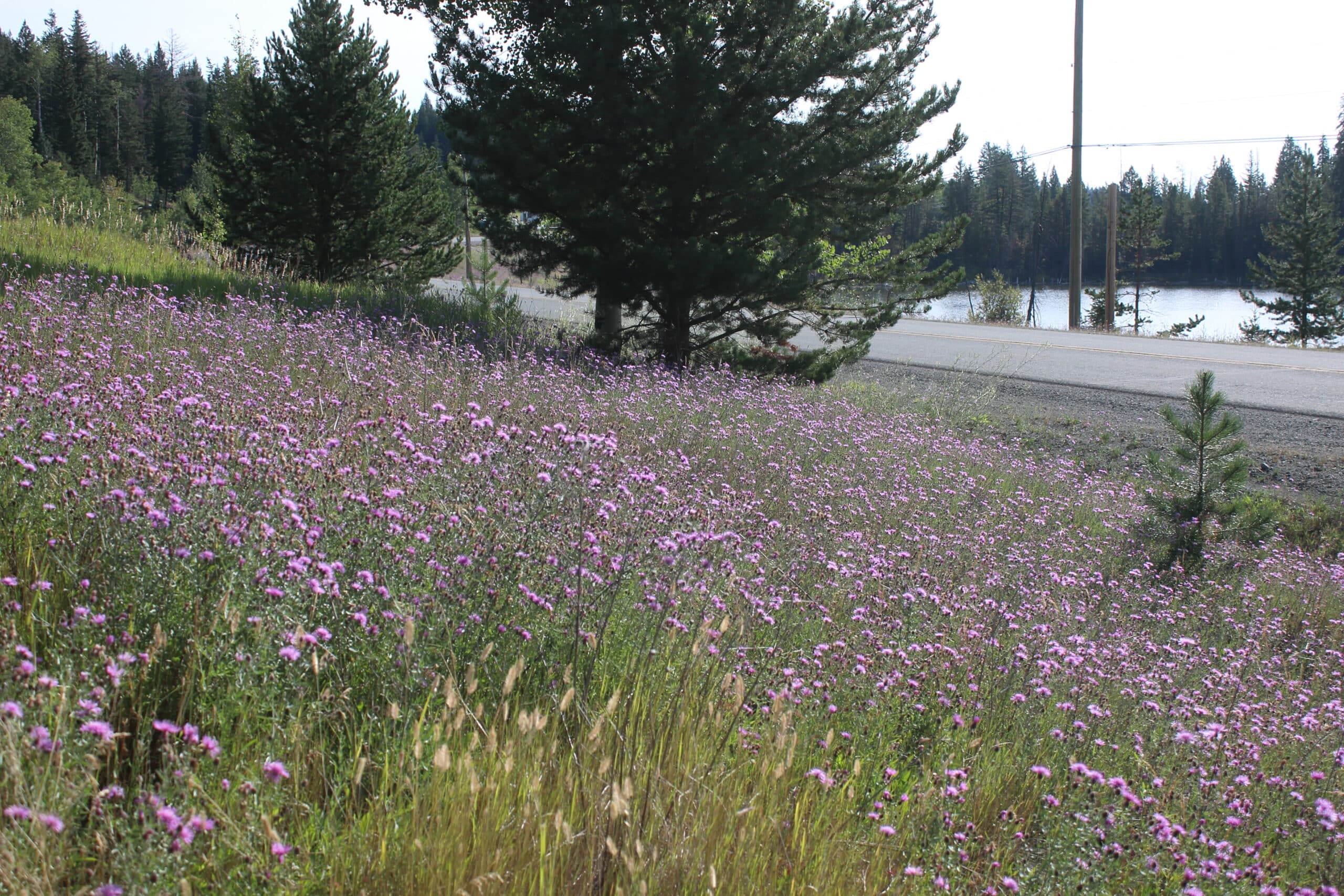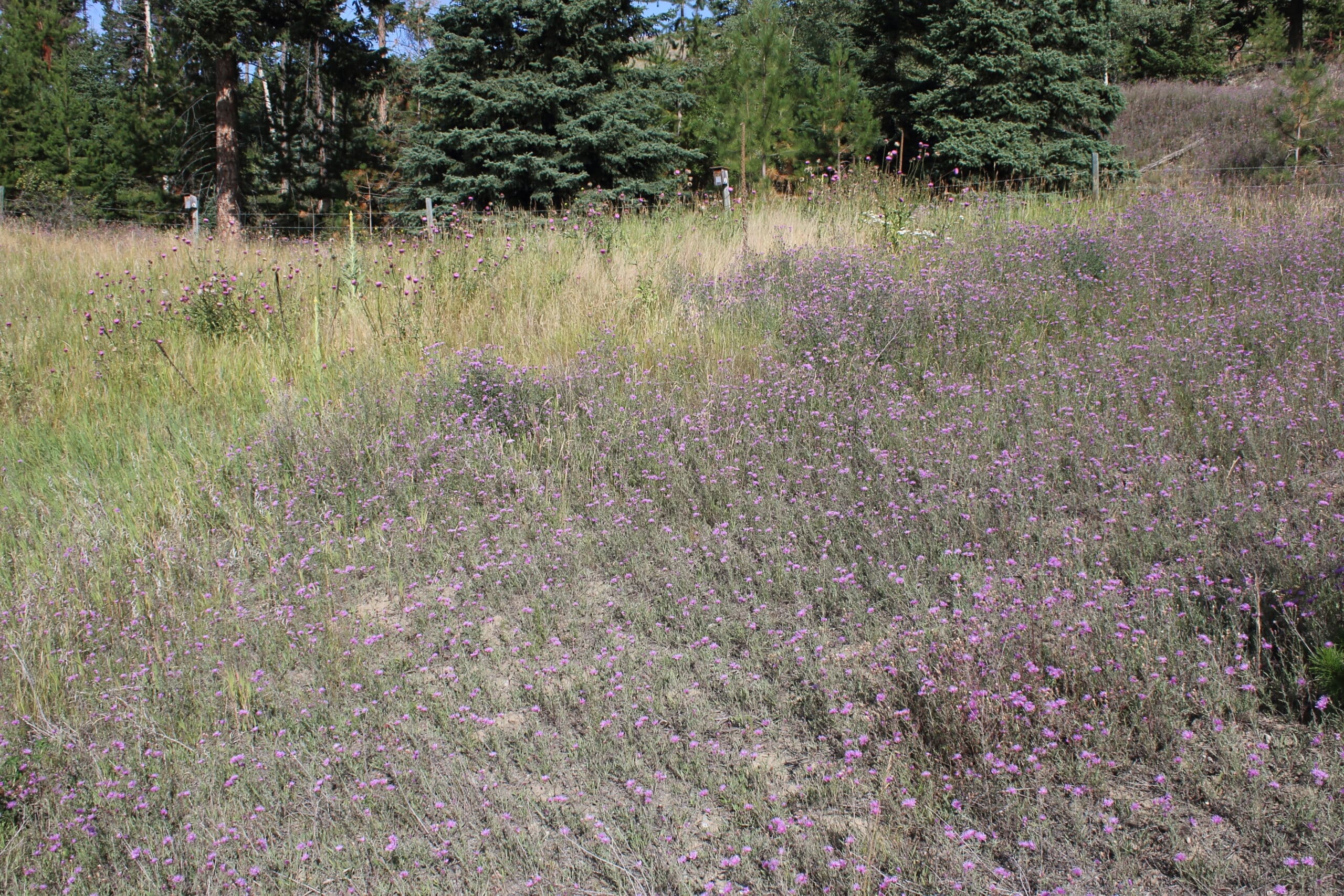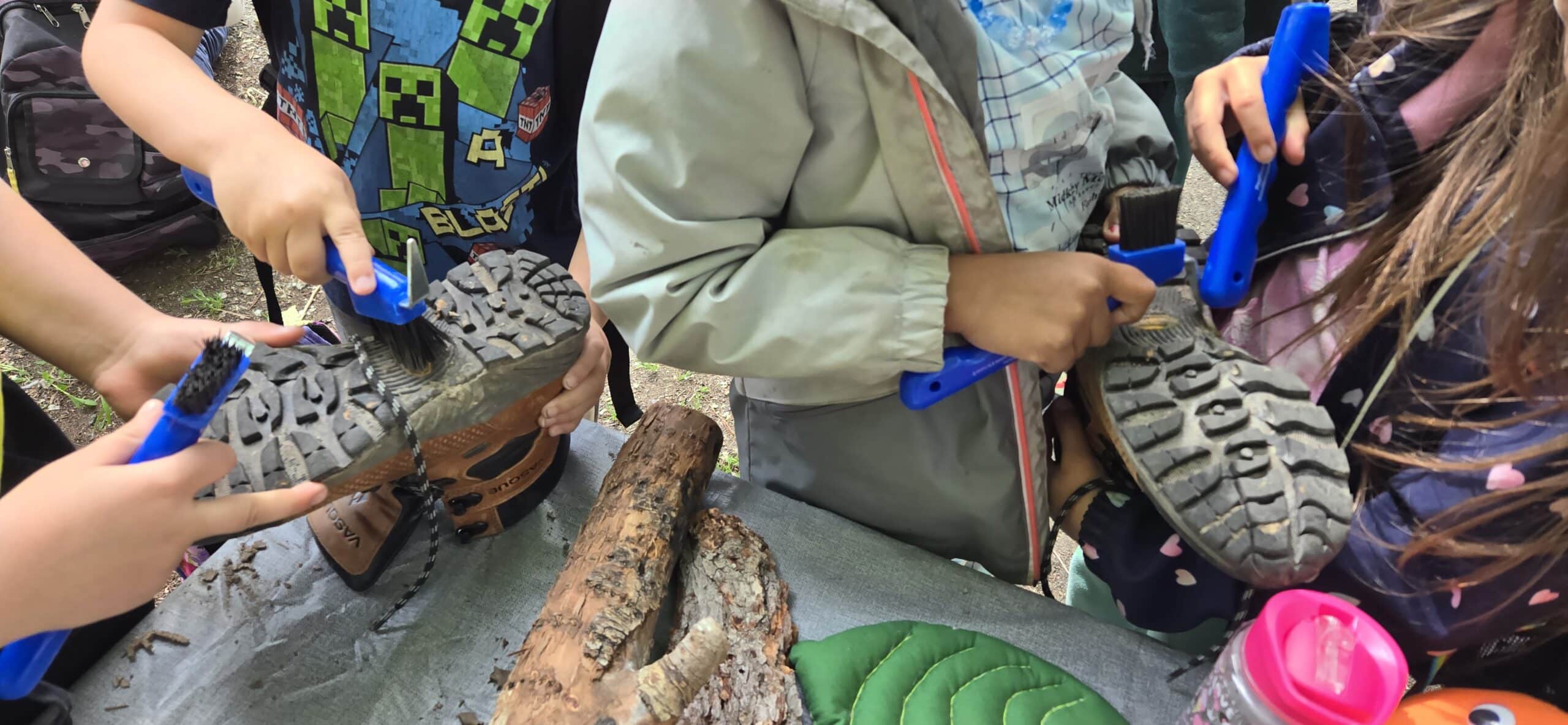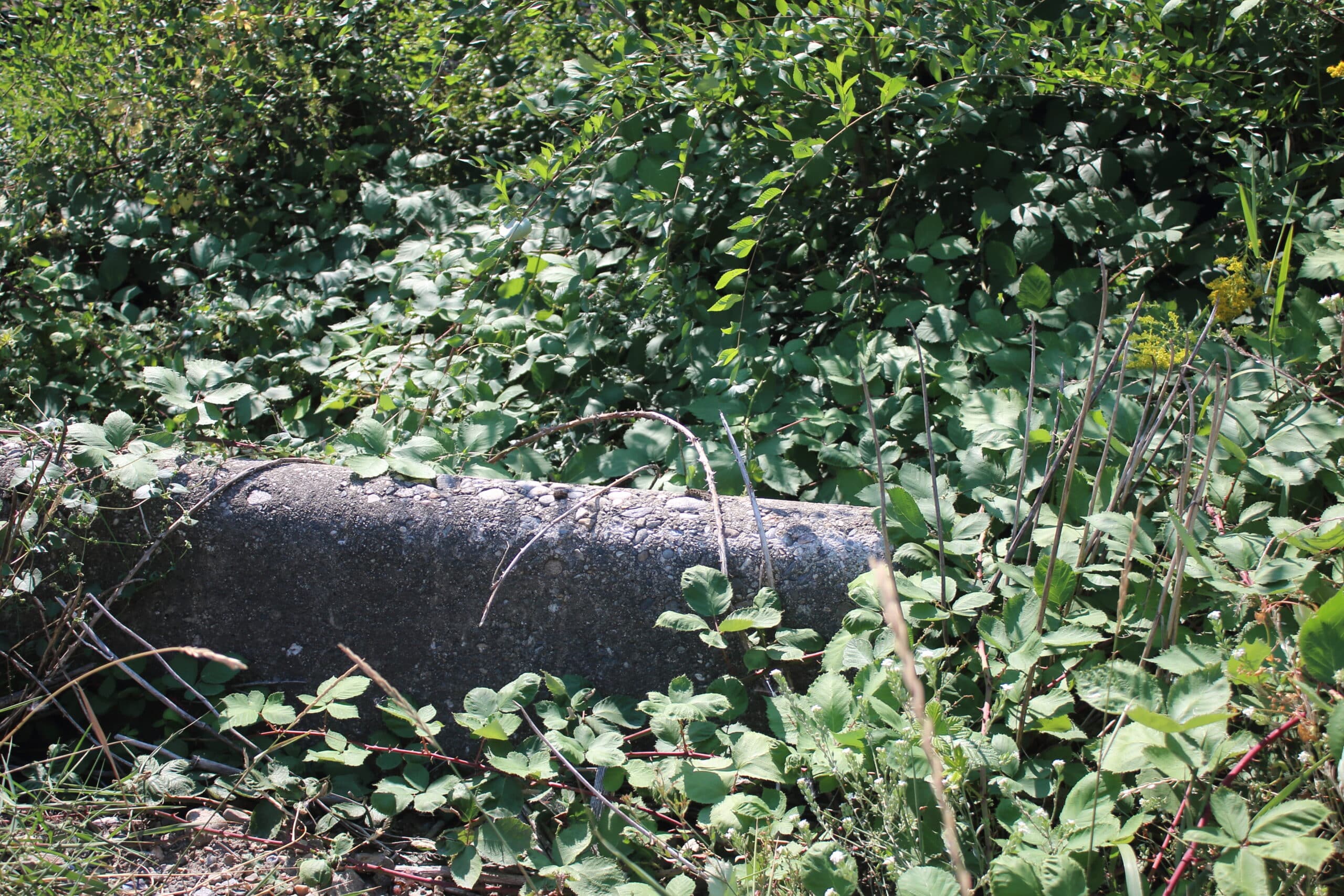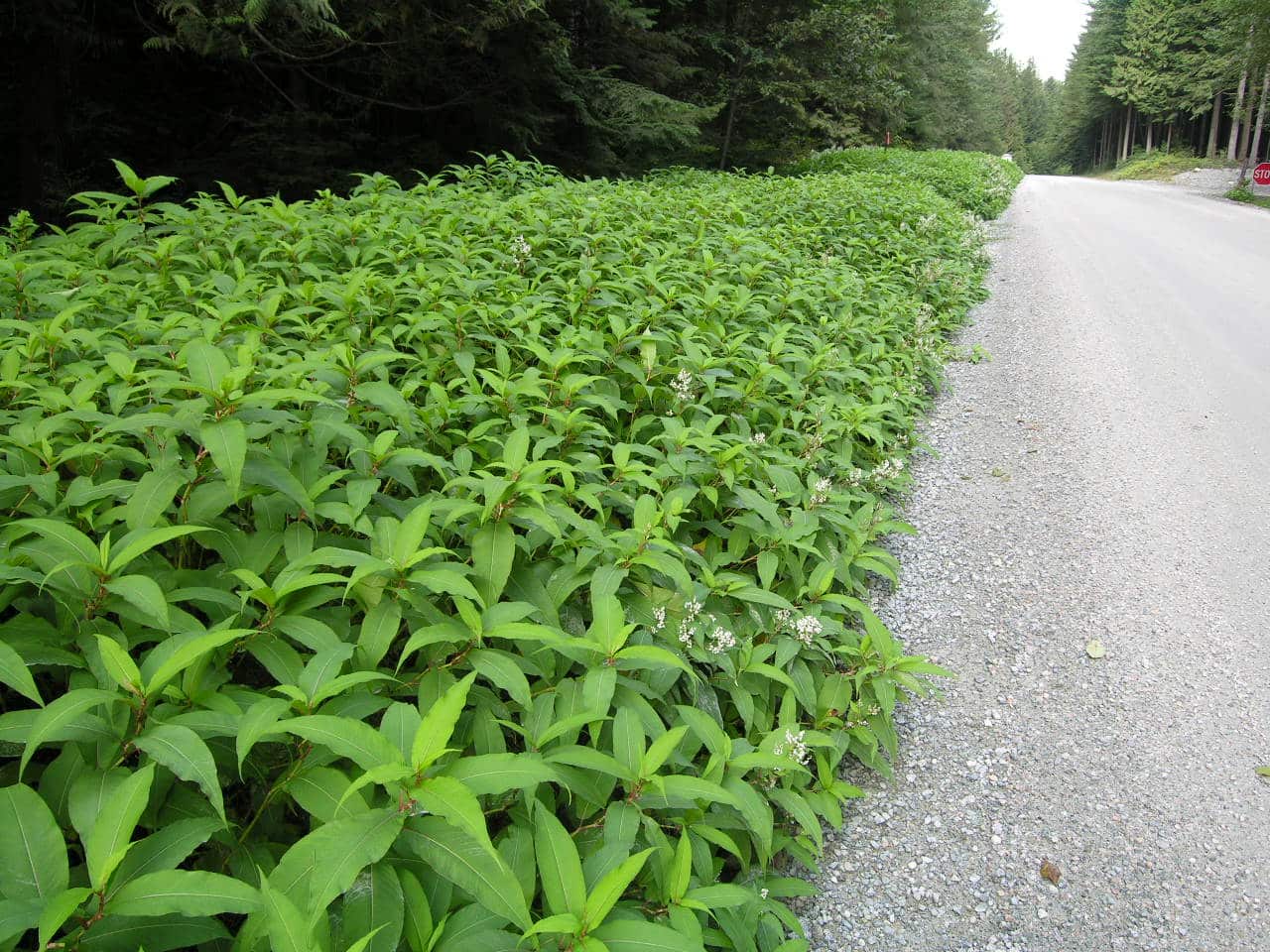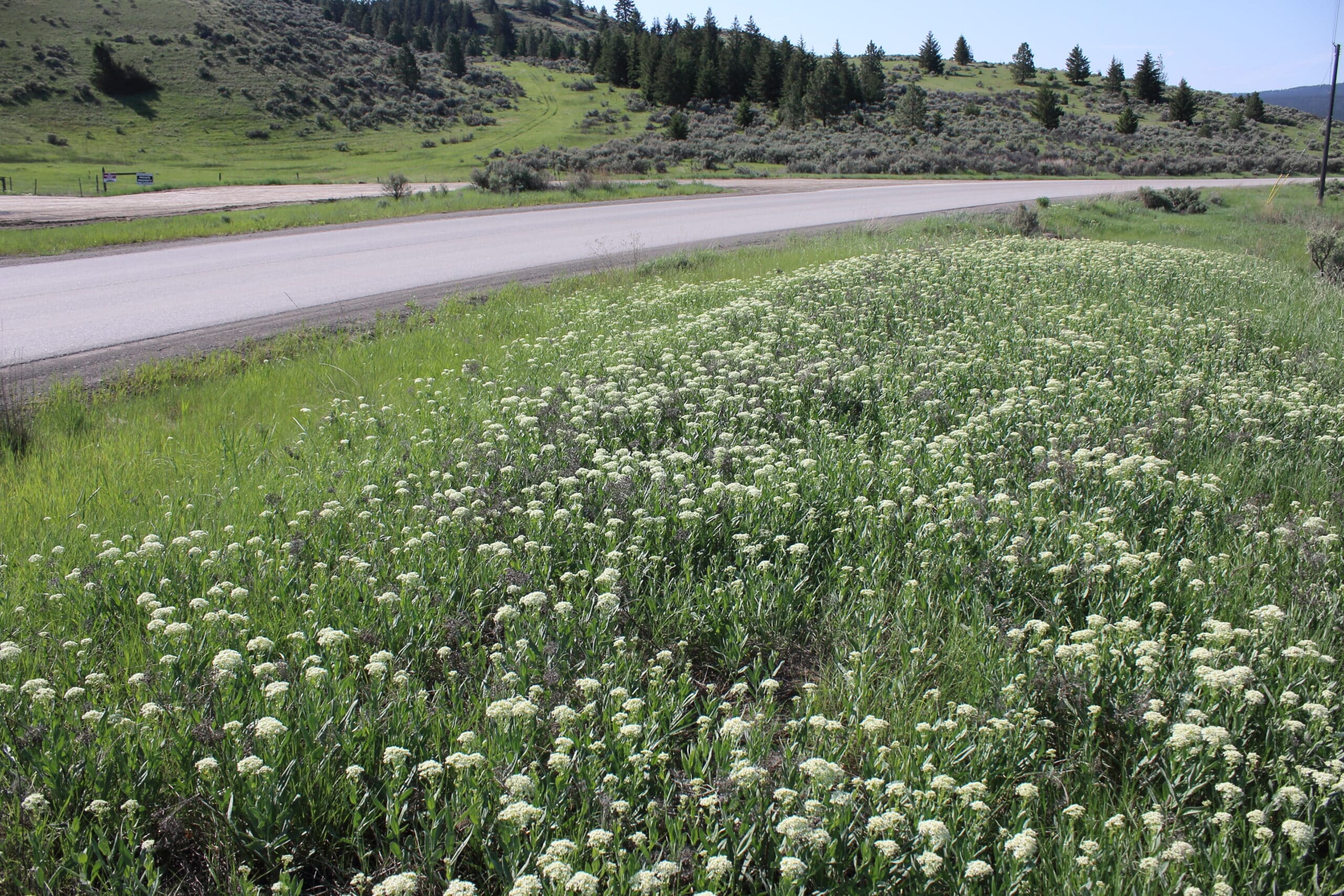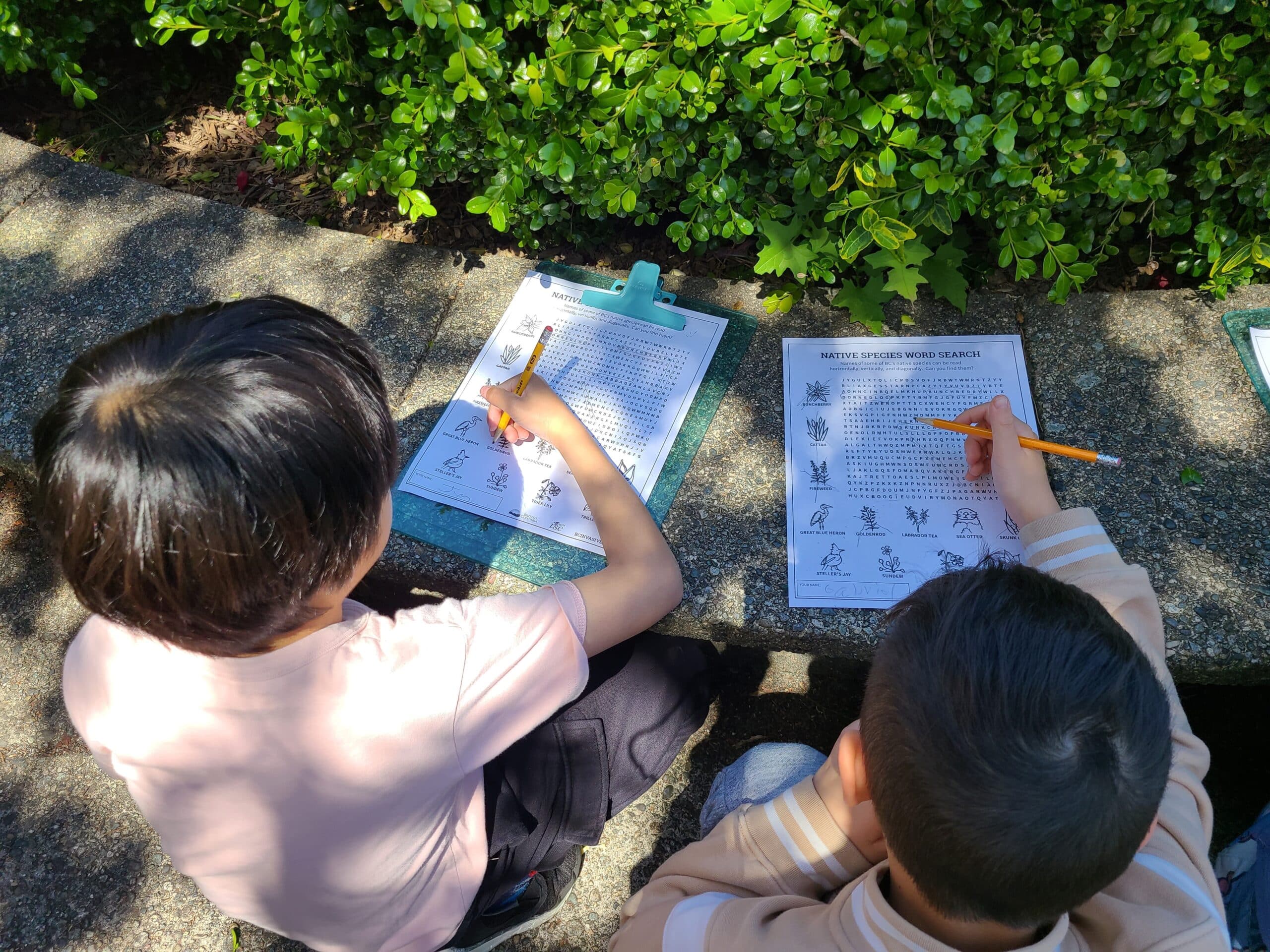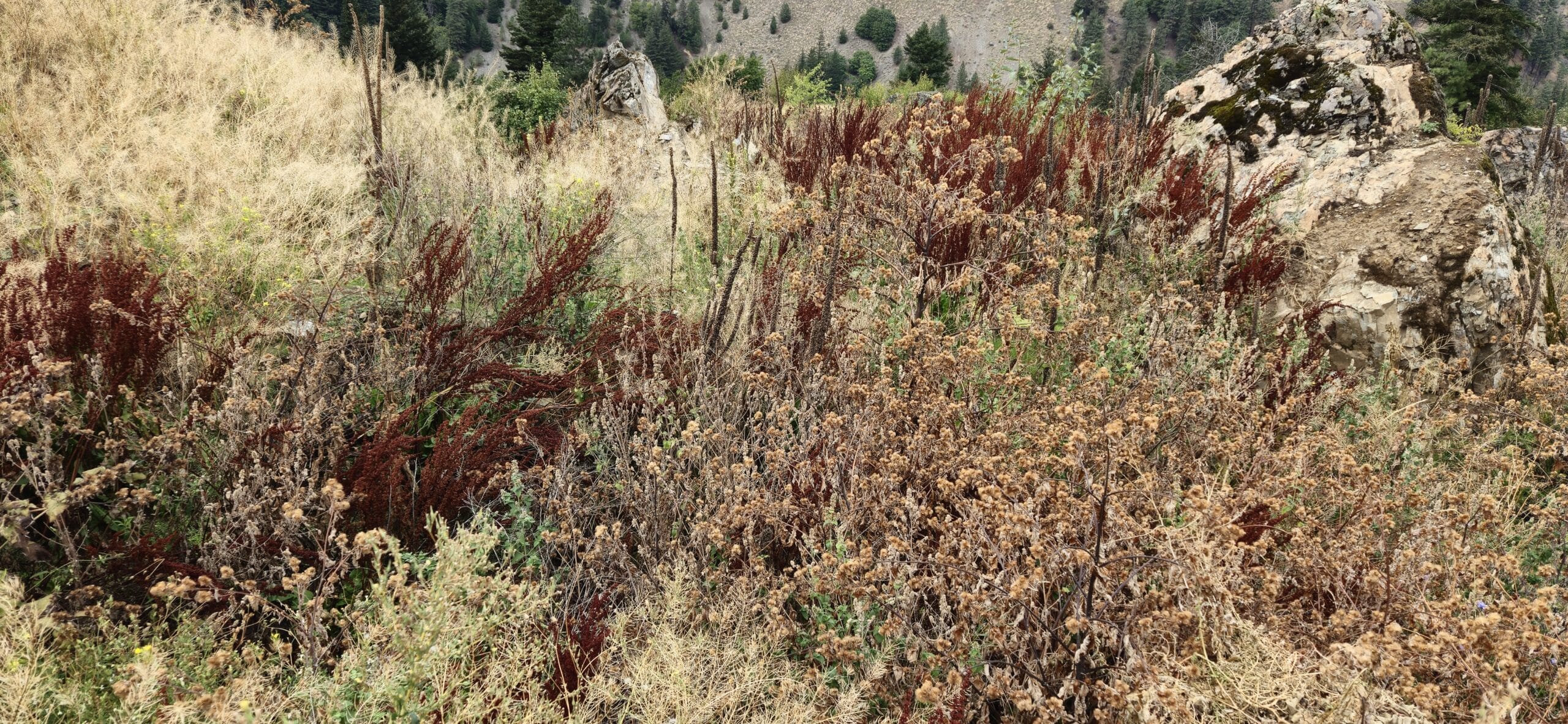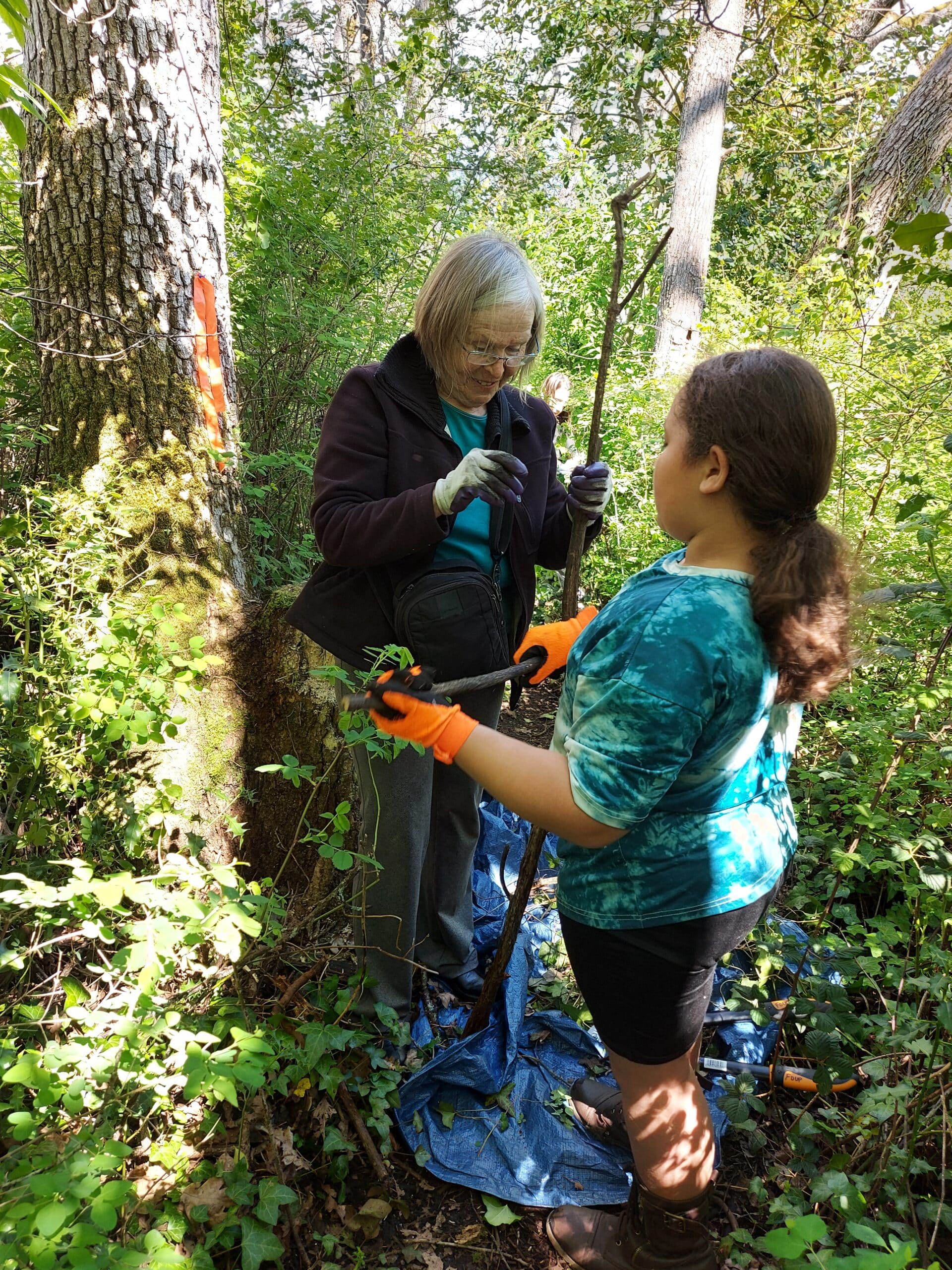Published August 25, 2021
In late July, ISCBC volunteers worked alongside Burns Bog Conservation Society’s Katelyn Colwell to remove invasive Himalayan balsam (Impatients glandulifera) from Lower Cougar Creek. The creek is one of Delta’s most important salmon-bearing waterways.
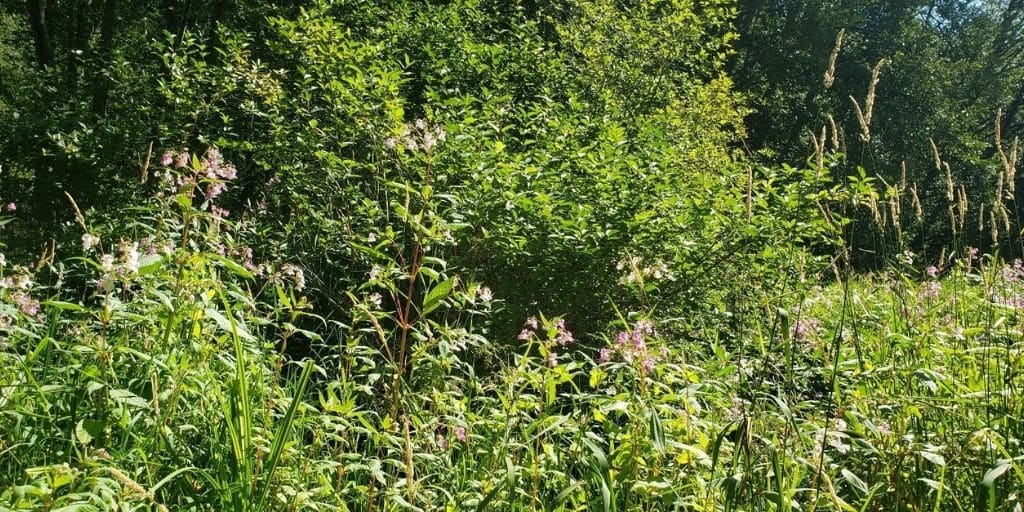
Himalayan balsam is an aggressive spreader that can quickly dominate ground cover and reduce an area’s biodiversity by crowding out native plants. It is capable of producing up to 32,000 seeds per square meter. Its shallow root system makes it a relatively easy plant to remove by hand.
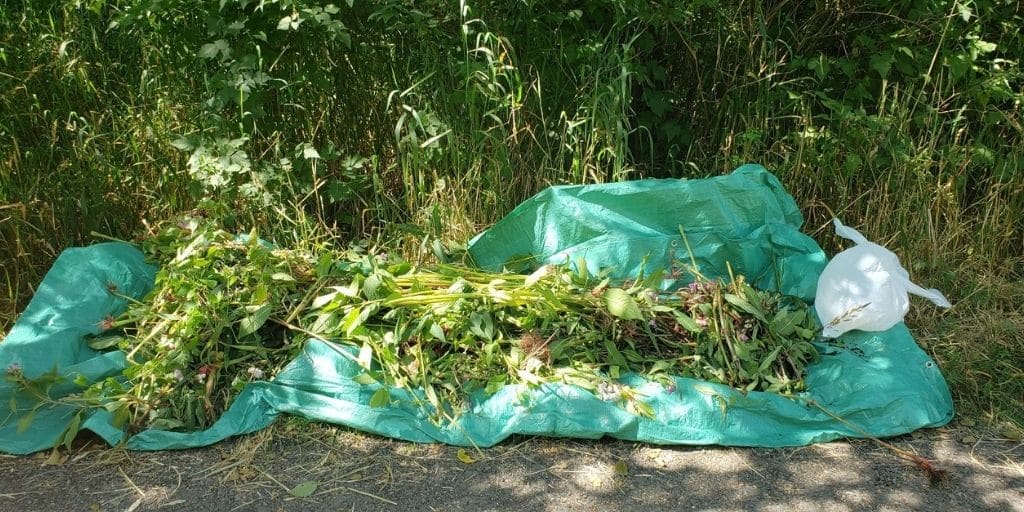
When disturbed, mature Himalayan balsam seed pods explosively release their seeds, which can lead to another infestation in future years. To prevent additional spread during the weed pull, volunteers carefully bagged the seed pods while still on the plant.
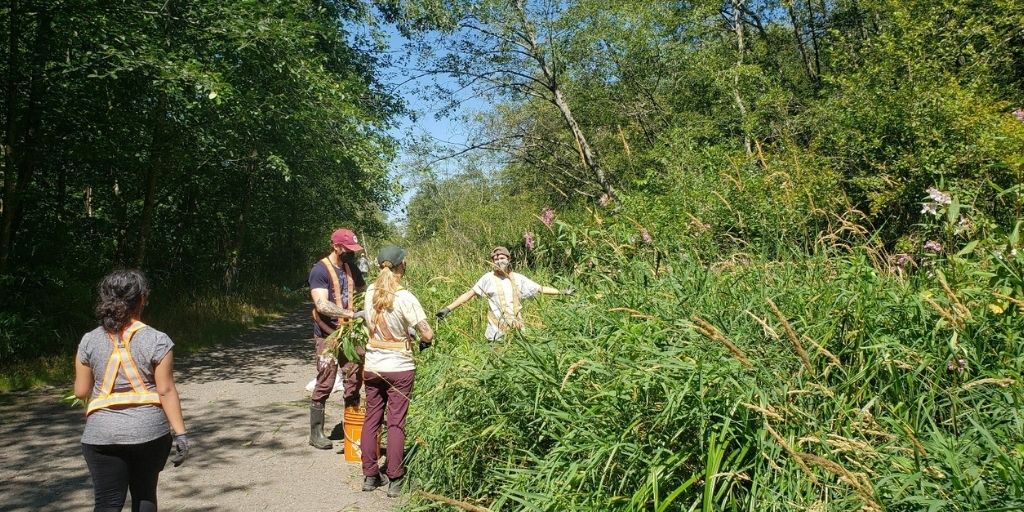
It is hoped that removing Himalayan balsam from Lower Cougar Creek will create space for native species, helping to shade out the invasive Reed canary grass growing along the banks. This will reduce stream bank erosion and promote rehabilitation of the ecosystem.
Have you seen Himalayan balsam?
Reporting is critical to the protection of BC’s biodiversity and stopping the spread of invasive species. If you come across Himalayan balsam, take photos and report the infestation.
Help Protect British Columbia
Are you eager to get outdoors, get active, and get learning? Interested in having a real-world impact on your local community? Our youth volunteers help to protect BC from new and spreading invasive species, by gaining expert knowledge of their local environments and ecosystems, and by taking meaningful action in the field.
Share


